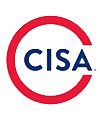DATA SECURITY GOVERNANCE SERVICES
Know Where Your
Data Is So You Can
Ensure Protection
Address the challenges of unstructured data and data sprawl through a proven process to assess and design a Data Security Governance Program that meets your unique needs.
DATA SECURITY GOVERNANCE OVERVIEW
Design a Comprehensive and Customized Data Security Governance Program
IDC estimates that by 2025 there will be 175 zettabytes of data globally and that 80% of that data will be unstructured. A lack of Data Security Governance Strategy within your organization can lead to data sprawl and increased risk.
Our cybersecurity experts can help your organization build a comprehensive Data Security Governance Program to avoid costly consequences like unauthorized access and exfiltration, damage to your brand reputation and non-compliance with laws, regulations and organizational policies. Regardless of your data security governance maturity level, we will design a bespoke strategy that will:
Review Program Requirements & Assess Policies and Controls
Perform Gap Analysis to Inform Program Design and Development
Recommend and Implement Supporting Technologies
Create Operational Processes and Metrics
DATA SECURITY GOVERNANCE OFFERINGS
Leverage Proven Data Discovery Strategies
Our Data Security Governance services leverage new technologies and developments in the data governance field to conduct data discovery in your environment and provide tailored recommendations for solutions to build a program that works for you, including:
- Data Security Posture Management (DSPM) systems
- Data protection technologies like data encryption, data-masking and data sanitization
- Data restriction technologies like Data Loss Prevention (DLP) and Cloud Access Security Broker (CASB) systems Secure data disposal and crypto-shredding technologies
- Data exfiltration monitoring and Behavioral Anomaly (BA) tools
DATA SECURITY GOVERNANCE OFFERINGS
Identify and Catalog Sensitive Data
For organizations just getting started in the process of protecting their sensitive data, we offer Data Identification workshops to identify sensitive data types in your environment, including often overlooked data types such as trade secrets, intellectual property and sensitive business communications; allowing us to create a Sensitive Data Catalog.
DATA SECURITY GOVERNANCE OFFERINGS
Assess Your Data Security Governance
For organizations with existing Data Security Governance or Data Protection programs, we assess your program to identify policy non-compliance, gaps in data protection requirements (legal/ regulatory/ contractual/ business) and program maturity levels (using the Data Security Maturity Model by the C3 Working Group).
DATA SECURITY GOVERNANCE OFFERINGS
Develop Your Data Security Governance Program Strategy
We work with your organization’s key stakeholders to design a program strategy aligned with relevant requirements (e.g. NIST CSF) to deliver ongoing sensitive data discovery, automated classification and labeling, the application of required sensitive data protections (e.g., encryption), restrictions on where sensitive data can be stored and sent and data retention policy enforcement.
DATA SECURITY GOVERNANCE OFFERINGS
Identify Sensitive Data Within an M&A Target
We help you identify sensitive data within an M&A target or recent acquisition (including locations, amounts and access rights) and then perform penetration testing on the storage repositories where that sensitive data exists to determine the risk of data compromise.
CYBERSECURITY CERTIFICATIONS
Your Elite, Highly-trained Team
Our expert team has decades of experience in building, operating and maintaining comprehensive Data Security Governance programs.
Highly Trained, Highly Certified
Examples Include:



ISC2 and ISACA
DATA SECURITY GOVERNANCE OUTCOMES
Minimize the Risk of Data Sprawl
Our Data Security Governance services are designed to help you address the challenges of unstructured data and data sprawl and meet your data governance goals in both on-prem and cloud environments.
Identify and Catalog Sensitive Data
Identify and catalog sensitive data types within your environment.
Assess Your Program
Determine if you have gaps in data protection requirements.
Build/Enhance Your Program
Design a program strategy to discover, classify and protect data.
Your Trusted Advisor
Our team works side-by-side with you as your cybersecurity partner.
“GuidePoint Security is basically family. They’re always there when I need them. At the end of the day GuidePoint is always there to help and that’s how they add value.”
Mark Gilman
Security Manager
